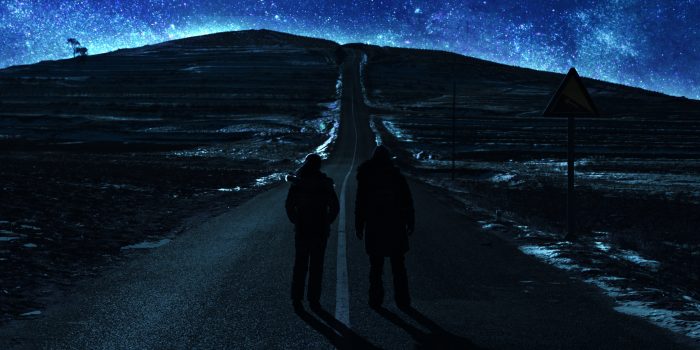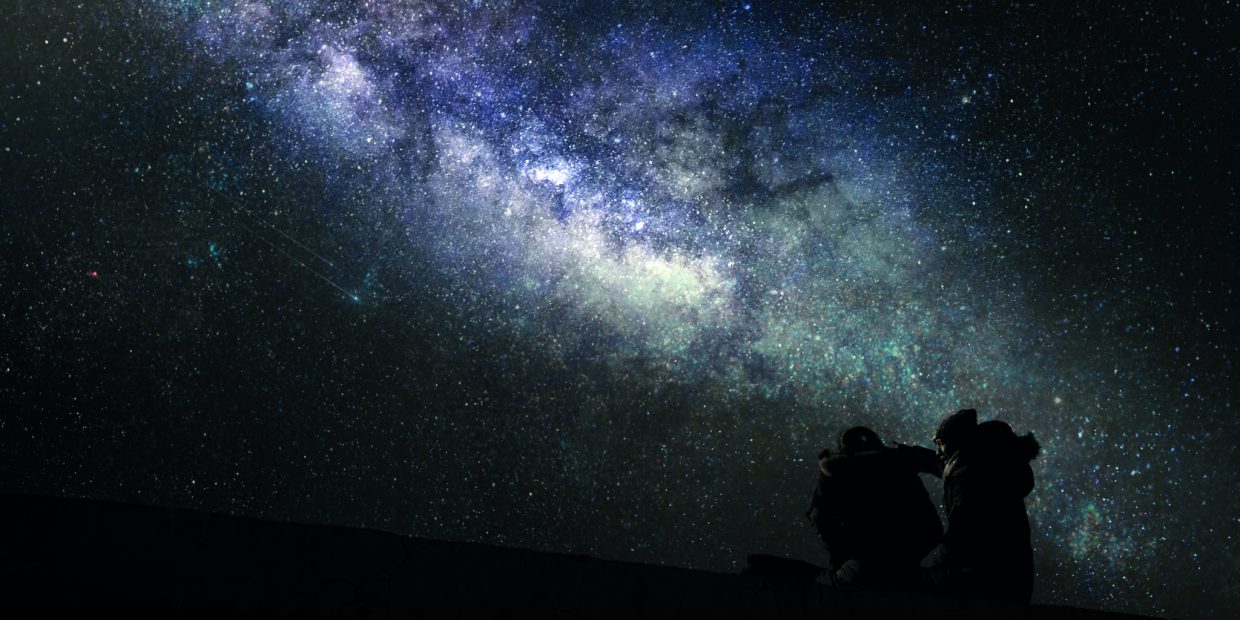Director: Ren Wen
Sci-Fi-London Film Festival 2019 review
Apocalyptic dread and societal turmoil take a backseat to cosmic wonder and millennial drama in Last Sunrise, a wistful and absurdity-tinged sci-fi that observes the end of the world with a mix of melancholy and amazement. Sure, civilisation has effectively collapsed and billions of corpses are no doubt pilling up just off-screen, but isn’t the universe still a wondrous thing to look at?
One man who knows all about the majestic order and humbling scale of the cosmos is Sun Yang (Zhang Jue), a reclusive astronomer who spends more time speaking to his A.I. than any actual human beings. Yang’s occupation makes him among the first to see the warning signs that the Sun is going to disappear, and when it does, he sets off on a road trip to find answers and sanctuary amidst an increasingly hostile climate.
Yang’s need for a ride sees him pairing up with his neighbour Chen Mu (Zhang Yue), a bubbly young woman whose warm nature contrasts with the icy landscapes they navigate and the exploitative people they encounter. As the world descends into violence and chaos, Yang himself has many a selfish moment, and even attempts to abandon Mu when she steps out the car for a bathroom break. But while Mu’s trust in people is repeatedly challenged on their journey, her resilience and optimism gradually soften Yang’s cynical demeanour.

This central relationship ensures that the film never loses touch with its sentimental side, even when alluding to the impersonal matter of mankind’s millennia-spanning trajectory. The China of Last Sunrise is a vision of the not-too-distant future, where most of the country has converted to solar energy, and physical objects like paper maps have become items of novelty that the leads struggle to use. Once the Sun disappears, however, the old ways re-emerge, and while the film’s insights on man’s hubris and dependence on technology don’t exactly break new ground for the sci-fi genre, its story of a world in transition at least allows for some memorable juxtapositions.
Just take the scene where Mu and Yang huddle round a fire in the living room of solar power entrepreneur Wang Yun (Wang Dahong). In a setting that blends the modern and the ancient, Yang and Yun recall the myths of Icarus and Hou Yi – two parables that offer conflicting lessons on man’s standing within the natural world. A more topical moment of circularity comes later, when Mu and Yang pass through a coal factory where survivors are forced to work for food, shelter and oxygen. But while director Ren Wen scatters hints of social commentary throughout the drama, the stakes here are largely personal.
At times, the film’s earnestness oversteps the mark, like in the scene where Yang’s A.I. named ILSA runs out of power. The problem isn’t that the incorporeal character’s “death” is played relatively straight. In fact, the sequence initially carries an eerie poignancy as this last vestige of a bygone era passes away. Nonetheless, there’s a limit to our sympathy that Ren regrettably crosses when the moment transitions into a maudlin montage of ILSA’s previous scenes – most of which, amusingly enough, consist only of ILSA giving Yang his wake-up call.

For the most part, however, Ren’s grasp on atmosphere proves sufficient at keeping the film’s mawkish tendencies on a leash, imbuing the end days with a sense of awe more than anguish. In the film’s sunlit passages, light pours through windows with an otherworldly intensity, as the Sun flickers like a dying bulb. In the wake of its disappearance, the sky becomes a majestic map of the cosmos, while down on Earth, Ren builds bittersweet mood from such elegiac imagery as a lipstick drawing of the Sun on a frosted over window.
More than the mechanics of its plot or its human-level drama, Last Sunrise resonates for the potency of its visuals, the best of which offer a spellbinding reminder that the story of the universe is far from over, whether mankind is still around to appreciate it or not.





